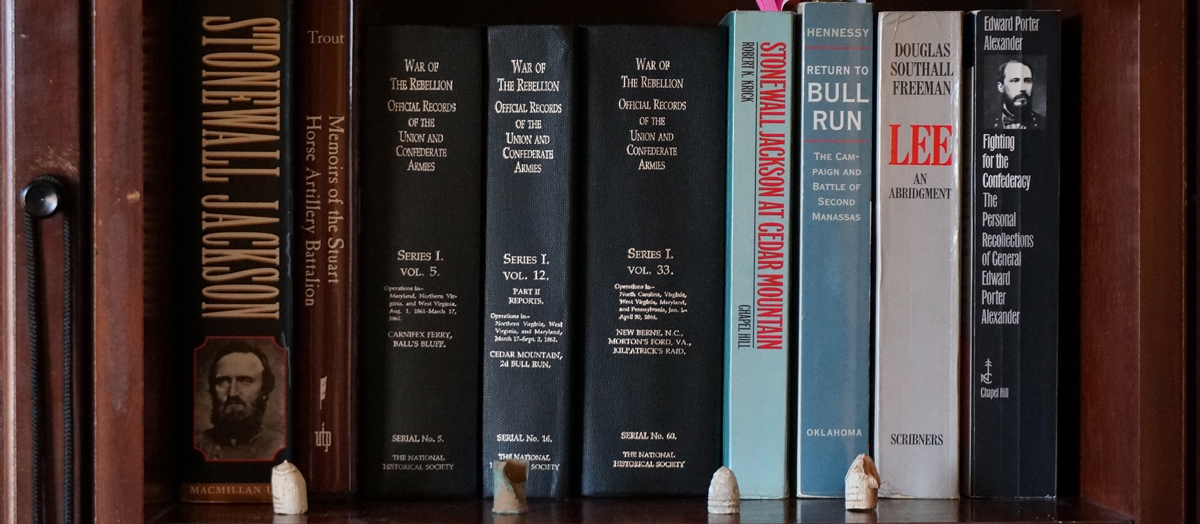No. 59.
Report of Maj. Gen. Richard S. Ewell, C. S. Army, Commanding Third Division.
Richmond, Va., March 6, 1863.
Sir: I have the honor to report as follows the movements of my division at Cedar Run on August 9, 1862:
My division followed the cavalry advance, and when we reached the south end of the valley the enemy’s cavalry were seen in strong force in our front. A reconnaissance was made, and artillery fired on the enemy, which drove them back, soon to reappear. It was evident that the enemy intended to make a stand at this place.
Shortly after 1 o’clock my division was ordered forward, Early’s brigade, under cover of the woods, to the left; Trimble’s and Forno’s brigades on the right; Dement’s Maryland Artillery, Brown’s Cheasapeake Artillery, and D’Aquin’s Louisiana Artillery were posted in the valley, and served with effect under the general direction of Major Courtney in the plain. I reached the point of Slaughter Mountain with the two brigades of Trimble and Forno and established from a commanding position Latimer’s battery, with a section of Johnson’s, under Lieutenant Terry, which opened with marked effect on the enemy, drawing much of the artillery fire which had been concentrated against our left wing. Captain Latimer was advanced later in the evening, so as to obtain a more effective position. The enemy moved a section of artillery to meet this fire and protect their left flank. Captain Latimer exhibited his usual coolness and judgment. Major Lowther was ordered forward with the Fifteenth Alabama, deployed as skirmishers, against the enemy’s left flank. They were exposed to the fire of artillery, which they supported with unflinching bravery, and led the later movements from our right. I found a mill-pond stopped the farther progress of our right, and for a short time the only approach against the enemy was swept by our batteries in the valley. When this difficulty was removed the two brigades — Trimble’s on the right and in advance — marched under a heavy fire from the enemy’s artillery against the battery on their left, the front covered by skirmishers from the Fifteenth Alabama the brigade advancing en échelon of regiments. The enemy hastily abandoned the field, leaving their wounded, several loaded ammunition wagons, and a piece of artillery. As it was too late to distinguish friend from foe, and shouting was heard to my left rear of the line of battle, I halted to communicate with the center, now advancing under General Early in a direction to intersect my line of march. While waiting I received orders to join the left wing, under the major-general in person. Night stopped the pursuit, and next morning I was remanded to Slaughter Mountain.
An armistice having been agreed on to bury the dead, General Early returned to the field with a detachment from his brigade, and while there removed six wagon loads of arms, besides burying nearly 100 dead left by the other divisions of the army, and which would not have been buried but for his energy. General Early, though on duty since the battle of Malvern Hill, was still so enfeebled from the effects of a wound received at Williamsburg as to be unable to mount his horse without assistance. I beg to call the attention of the major-general commanding to the gallant and effective service rendered by General Early, repulsing repeated attacks of the enemy, contributing largely in driving him from the field. I beg leave to recommend him for promotion, and also heartily indorse his recommendation for the promotion of Colonel Walker, of the Thirteenth Virginia, to the rank of brigadier-general.
My staff present were Lieut. Col. J. M. Jones and Capt. G. Campbell Brown, Adjutant-General’s Department; Lieut. T. T. Tuner, aide-de-camp, and Lieutenant Richardson, Engineer Corps. These officers were, as usual, active and efficient in the performance of their duties. Lieutenant Elliott Johnston, aide-de-camp to Brigadier-General Garnett, volunteered on my staff for the battle, and here, as well as afterward at Bristoe, I profited largely by his activity, coolness, and intelligence. This officer was severely wounded at Sharpsburg. His valuable and long services to the Confederacy, most of the time without rank, entitle him to promotion.
I inclose herewith reports from Captain D’Aquin, Louisiana Battery; Major Courtney, chief of artillery; Colonel Waker, Thirteenth Virginia; Colonel Forno, commanding Hays’(Louisiana) brigade, and Generals Trimble and Early.
My losses were:
| Killed. | Wounded. | |
| Artillery | — | 8 |
| Early’s brigade | 16 | 145 |
| Trimble’s brigade | 1 | 17 |
| Forno’s (Hays’) brigade | — | 8 |
| Total | 17 | 178 |
Respectfully,
R. S. EWELL,
Major-General.
Col. C. J. Faulkner,
Assistant Adjutant-General.

